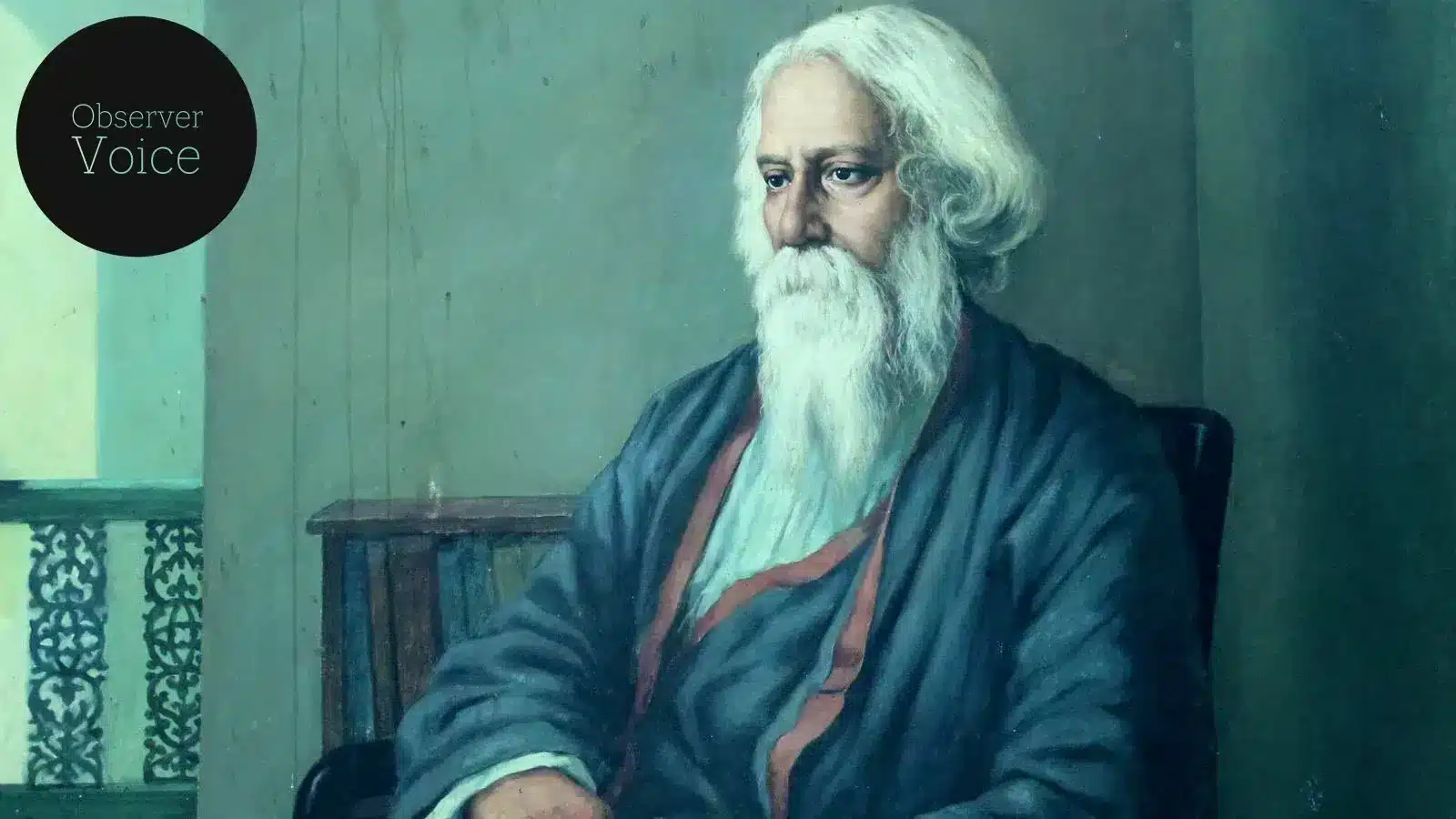Tagore’s Tapestry: Exploring the Legacy of Rabindranath Tagore’s Literature and Philosophy

Rabindranath Tagore (7 May 1861 – 7 August 1941) was a Bengali polymath – poet, writer, playwright, composer, philosopher, social reformer and painter. He was highly influential in introducing Indian culture to the West and vice versa, and he is generally regarded as the outstanding creative artist of early 20th-century India.
He not only gave the national anthems for two countries, India and Bangladesh, but also inspired a Ceylonese student of his, to pen and compose the national anthem of Sri Lanka.
Life and Career
Rabindranath Tagore was born on 7 May 1861 in the Jorasanko mansion in Calcutta, the son of Debendranath Tagore and Sarada Devi.
In 1901 He founded an experimental school in rural West Bengal at Shantiniketan, where he sought to blend the best in the Indian and Western traditions. He settled permanently at the school, which became Visva-Bharati University in 1921. Years of sadness arising from the deaths of his wife and two children between 1902 and 1907 are reflected in his later poetry, which was introduced to the West in Gitanjali (1912). This book, containing Tagore’s English prose translations of religious poems from several of his Bengali verse collections, including Gitanjali (1910), was hailed by W.B. Yeats and André Gide and won him the Nobel Prize in 1913.
He was also referred to as ‘Gurudev’, ‘Kabiguru’, and ‘Biswakabi’. He is regarded as the outstanding creative artist of modern India and hailed by W.B Yeats, Rabindranath Tagore was a Bengali poet, novelist, and painter, who was highly influential in introducing Indian culture to the west. He was an exceptional literary figure and a renowned polymath who singlehandedly reshaped the region’s literature and music. He was a good friend of Mahatma Gandhi and is said to have given him the title of Mahatma. He had always stressed that unity in diversity is the only possible way for India’s national integration. He had spoken at the World Parliament for Religions in the years 1929 and 1937. He died on 7 August 1941 in Calcutta.
Awards and Legacy
In 1913 he was awarded the Nobel Prize in Literature for his work on Gitanjali. He was the first indian to receive the Nobel Prize. In 1915 he was awarded knighthood by the British King George V. In 1919, following the Jallianwalla Bagh massacre he renounced his Knighthood.
Observer Voice is the one stop site for National, International news, Sports, Editor’s Choice, Art/culture contents, Quotes and much more. We also cover historical contents. Historical contents includes World History, Indian History, and what happened today. The website also covers Entertainment across the India and World.

